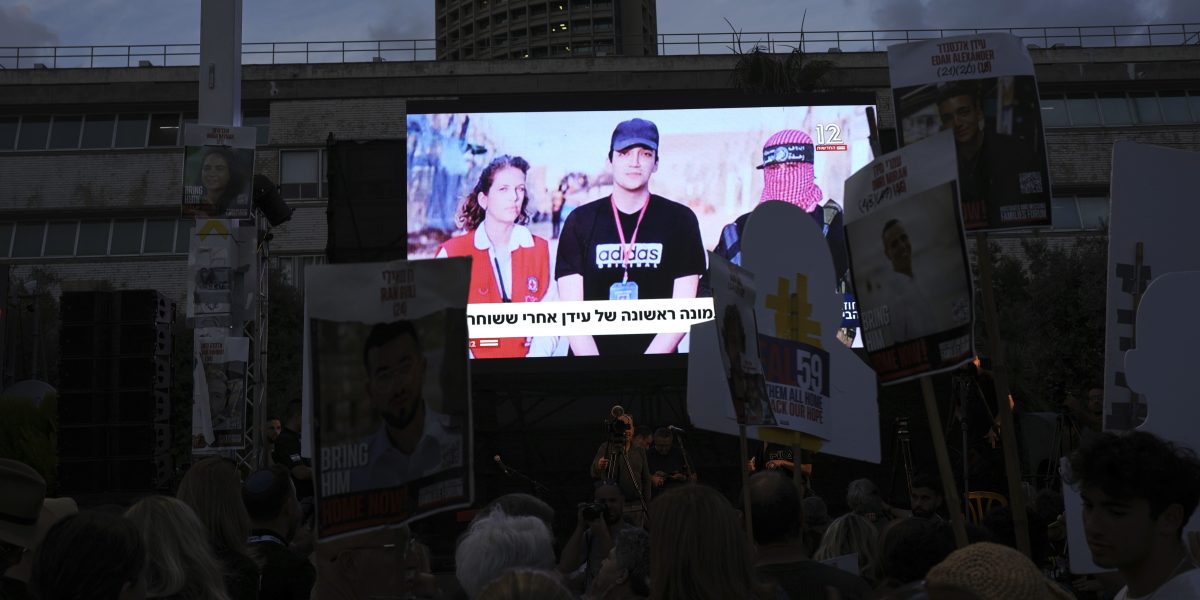There are several ways to describe someone held against their will, each with its own implications. The word “prisoner” suggests someone detained on suspicion of crimes or captured during times of war. “Hostage,” on the other hand, signifies a civilian held against their will.
Since the start of Israel’s genocidal war in Gaza, corporate media outlets in the U.S. typically describe Israeli captives as “hostages,” even if they are soldiers, and Palestinian captives as “prisoners,” even if they are children.
American news outlets on Monday referred to Alexander as “the last living American hostage” in Hamas custody. Anchors and analysts alike made little to no mention of his service with the IDF, instead grouping him with civilians who were also taken by Hamas.
For Omar Baddar, a Palestinian American political analyst who was previously with the Institute for Middle East Understanding, the news coverage of Alexander is a perfect example of “anti-Palestinian bias” within media. Many outlets failed to mention crucial context, Baddar said, such as “his active membership in a foreign military at the time of his capture, and more precisely the Israeli occupation army that was enforcing the illegal blockade on Gaza” even before October 7.



It’s entirely possible to use POWs as hostages. They aren’t mutually exclusive categories. One has to look at the statements and behavior of the actors involved to assess their motivations. Is it merely to reduce enemy fighting forces or are they also used as leverage? Hamas’s actions and statements make it clear in this case that they are hostages.
Of course, Hamas also took non-combatants hostage so I don’t see why you are willing to die on this hill, it’s incontrovertible that they do take hostages.
Which is why the non combatants can reasonably called hostages. But not the armed IDF soldiers.
Israel is kidnapping Palestinians to surpress them and steal their houses. They are they peak of taking hostages.